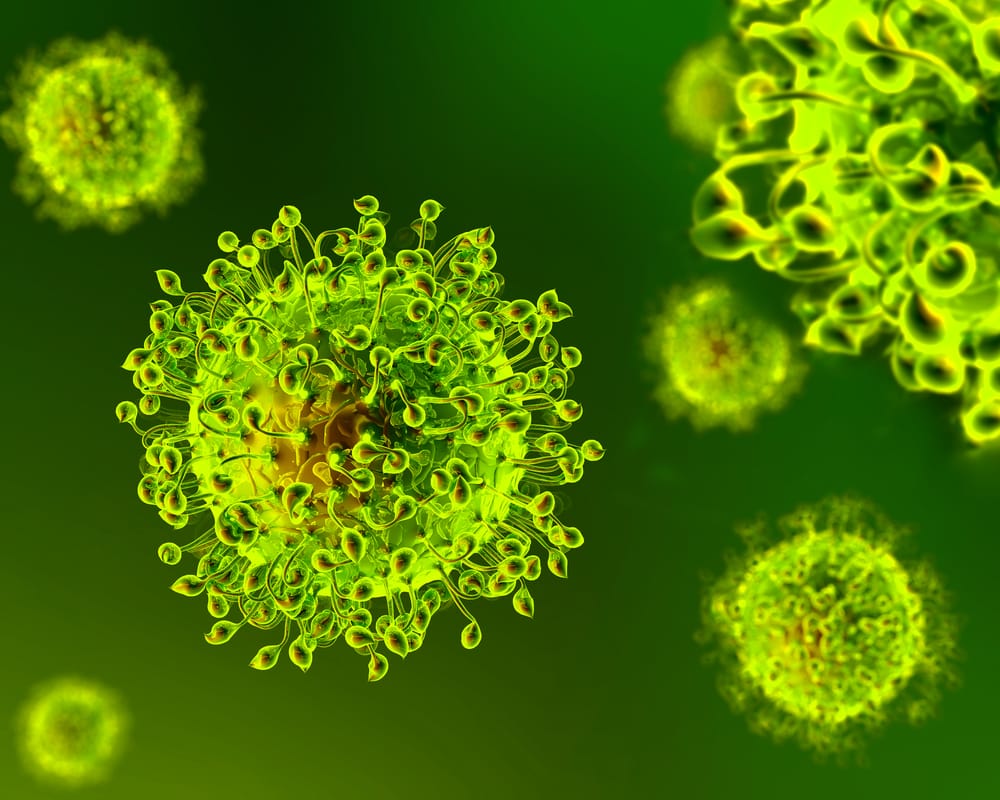The SARS-CoV-2 virus has spread rapidly following its first reported incidence in 2019, and since that time, several variants of the virus have circulated around the world, and more seem to be emerging all the time. While the vaccines in major circulation seem to be reasonably effective against all currently known viral variants so far, SARS-CoV-2’s spread and mutations have raised the question: is the virus mutating to evade the vaccines, and could a more dangerous, vaccine-resistant mutant arise?
Current Vaccines Holding Steady
The spike protein that enables SARS-CoV-2 to enter human cells shows signs of evolutionary processes, which probably facilitated the virus’s original spillover into humans. Current vaccines, particularly the BioNTech/Pfizer, Moderna, AstraZeneca and Janssen/J&J vaccines, have demonstrated levels of efficacy against the alpha, beta, and delta variants of SARS-CoV-2. This is because the variants have not shifted enough genetically, so they are still susceptible to the human immune responses triggered by the vaccines. However, scientists say they cannot rule out a future, more genetically distinct variant.
SARS-CoV-2’s Genetic Behavior
Devika Singh and Soojin Yi, biologists at the Georgia Institute of Technology, reviewed current evidence of coronavirus genetic changes in animals and humans. In a paper in Experimental and Molecular Medicine, Singh and Yi profiled how SARS-CoV-2 mutates:
- Coronaviruses undergo frequent genetic recombination, in which their genetic material mixes with genetic material from other hosts. If animals infected with different coronaviruses contact each other and exchange viruses, the viral genomes will recombine with host genomes, creating new variants or even strains of viruses. The more times “spillover” events occur that infect people, the more likely a new variant, or completely new virus, will be introduced.
- SARS-CoV-2 mutates more slowly than viruses like influenza or HIV. Despite this comparatively low mutation rate, new variants are being introduced into SARS-CoV-2 genomes. This is not because of some evolutionary drive the virus has to resist vaccines, but rather a result of the opportunity for reproduction and recombination given the large population of unvaccinated people and prolonged duration of the pandemic.
- Animals worldwide harbor an enormous diversity of coronaviruses, most of which have neither caused disease nor been transferred over to humans. However, increased contact with infected animals will raise the risk of exposure to new, infectious diseases — and infected humans could transfer new variants or strains to animals, continuing the cycle of recombination and mutation.
Singh and Yi’s review emphasizes the need to generate more information on how to prevent further coronavirus spillovers and create vaccines and other methods to halt infection and spread, stating, “It is imperative that epidemiological, genetic and functional studies of variants be fully utilized to determine how to slow down and ultimately eradicate within- and between-species transmissions.”
In the meantime, our best chance of avoiding a variant that is resistant to available vaccines is by increasing vaccination rates and following local guidelines to reduce risk of transmission of the SARS-CoV-2 virus.
Did you enjoy this blog post? Check out our other blog posts as well as related topics on our Webinar page.
QPS has CLIA-certified and GLP-compliant laboratories ready to fast-track your novel coronavirus and COVID-19 RT-qPCR/QPCR and Serological Assays and vaccine development programs. Since 1995, QPS has provided discovery, preclinical, and clinical drug development services. An award-winning leader focused on bioanalytics and clinical trials, QPS is known for proven quality standards, technical expertise, a flexible approach to research, client satisfaction, and turnkey laboratories and facilities. For more information, visit https://www.qps.com/coronavirus/or email mailto:info@qps.com.








